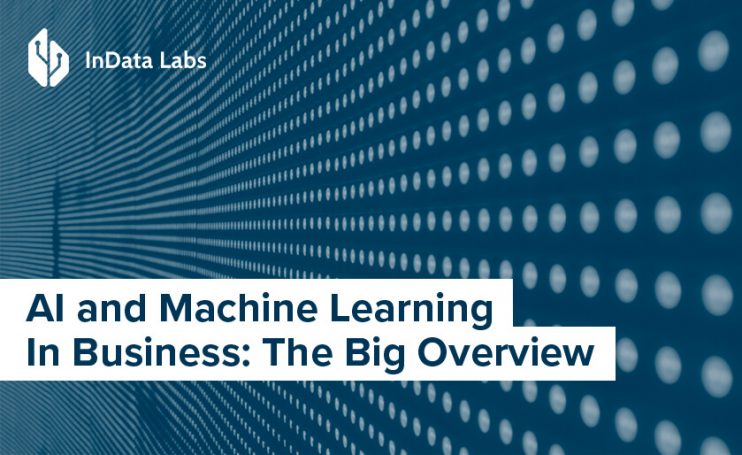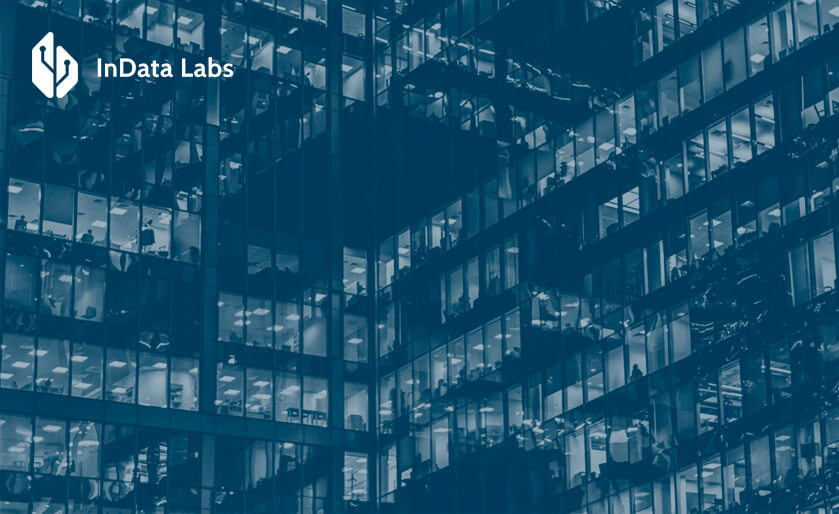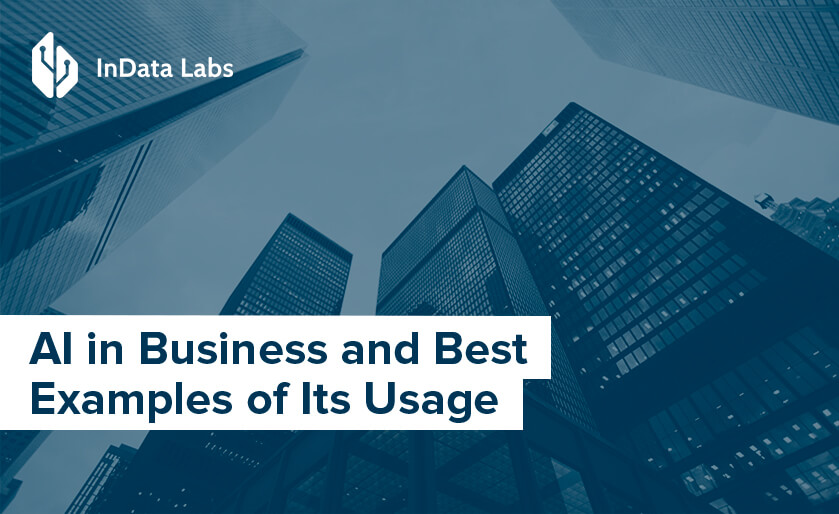Each day, marketers bombard us with tempting promises of a brighter future. Most of these promises reference the applications of AI and Machine Learning in business. But business opportunities in machine learning are no longer a subject of the future. Thus, the global AI market is expected to reach over a $190.61 billion market value by 2025. Also, a mere 7% of companies don’t use machine learning for business but are interested in it.
With that said, let’s see why machine learning business opportunities are not a hoax. And how can machine learning be used in business? This article aims to look into the real-world use cases of AI and Machine Learning in business.
But first, let’s find out what exactly Artificial Intelligence and Machine Learning mean.
What Is Artificial Intelligence?
Artificial Intelligence is one of those phenomena that brings about countless myths and misconceptions. The Surveys show the lack of a detailed idea even among top business leaders. Hollywood chips in with its self-replicating androids and evil machines.

Source: Unsplash
But in reality, this technology is not exactly what its name implies. Artificial Intelligence combines computers and Big Data to decide. It learns from experience, adjusts to new inputs, and automates human tasks. Artificial Intelligence operates with huge loads of data and analyzes incoming information. It then develops adaptive solutions based on extracted insights.
Artificial Intelligence feeds on real-time data to facilitate one of the following techniques:
- Machine Learning
- Deep Learning
- Neural Networks
- Natural Language Processing
- Computer Vision
- Cognitive Computing
Each of them has a unique set of capabilities and provides different solutions. The problems that we can solve with these AI fields are many:
- Identify trends and patterns
- Uncover inefficiencies
- Execute plans
- Predict future outcomes based on historical data
- Inform fact-based decisions
- Prevent frauds, etc.
Overall, labor-intensive business processes can be automated using AI. Companies can reduce the human resources and target human brains on more creative aspects of the business. Therefore, it’s no wonder that artificial intelligence and its counterparts test unknown waters for businesses.
Applying Machine Learning To Business Problems
Now let’s go over to our second notion. As we see, Machine Learning is a form of Artificial Intelligence. Although they rely on similar principles, the two are not interchangeable.
In simple terms, this technology refers to the Data Science principle. Thus, data-driven techniques allow a machine or an analytical system to learn by solving an array of similar problems on its own. It means that this technology helps identify patterns in an ocean of data and choose the best solution without human input. Machine Learning becomes effective in tasks that previously required human intelligence.
The learning process resembles that of a toddler. But instead of parents, we infuse data to train a computer program and recognize objects. And just like kids, ML models learn, detect patterns, and decide with minimal contribution from humans. In a perfect scenario, computers increase accuracy and remove the possibility of human error.
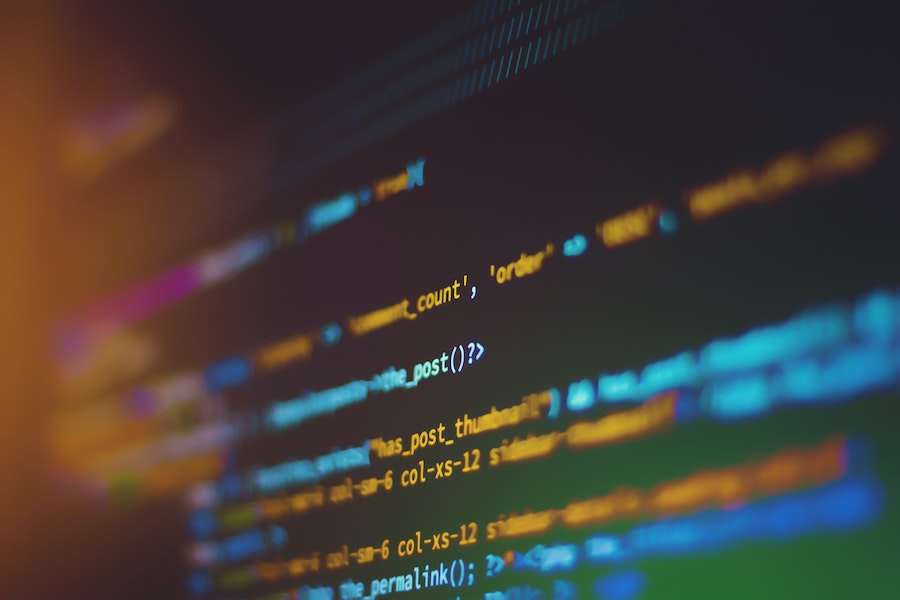
Source: Unsplash
All Machine Learning solutions inherit one of the following AI-based variations:
- Supervised Machine Learning – learns patterns from labeled data.
- Unsupervised Machine Learning – learns patterns from unlabeled data.
- Semi-supervised Machine Learning – a combination of the two mentioned above.
- Neural networks and Deep Learning – automatic learning through the absorption of data.
But it doesn’t mean we don’t need human employees anymore. AI-powered techniques have streamlined most operations. But it is the role of a business analyst role in machine learning that defines which processes we can automate. Therefore, complete automation is still not possible in any industry.
Now let’s move on to the benefits of machine learning in business.
Application Of Machine Learning In Business: Main Benefits
Tech advocates highlight the importance of machine learning in business. And there are some solid reasons behind the popularity of Machine Learning apps and software in business.
Thus, this AI-powered technology allows business owners to reap the following benefits:
1. No human error
Machines make accurate decisions based on previous information. Thus, computers gather data and apply machine learning algorithms. As a result, businesses can avoid direct human intervention, so human error is eliminated.
2. Continuous improvement
As machines get more training, they keep improving inefficiency. This lets them make better decisions. Thus, if you need a demand forecast, ML algorithms will do it faster and more effectively.
3. Round-the-clock availability
Machines can work 24/7 with no downtime. Also, they don’t tire of mundane and repetitive tasks, unlike humans.
4. AI machines can make fast decisions
Artificial intelligence and machine learning for business make data-driven decisions much faster than humans. Decisions rely solely on data, thus eliminating bias.
While the list is not exhaustive, this is just a sliver of all the power of machine learning in the business process.
Machine Learning In Business: Real-Life Use Cases
There’s no doubt that AI will keep its stronghold in the coming years. COVID-19 has also sped up the adoption and investments in this technology. According to the survey, organizations have increased investment in response to the pandemic. Such industries as automotive and healthcare services are more likely to infuse AI in their business processes.
But besides those two, other industries are embracing machine learning business opportunities as well.
Healthcare
Over the last few years, the healthcare industry has done much Machine Learning consulting. Tech titans like Microsoft, Google, and Apple have contributed to the proliferation of AI technologies in the sector.
Thus, Microsoft Cloud offers capabilities to manage health data at scale. Other top Machine Learning companies help healthcare organizations to improve the patient experience and coordinate care. All these are thanks to advancements in AI-enabled systems.
Artificial Intelligence amplifies a great number of healthcare services, including:
Medical Imaging
According to a new report from Signify Research, the global market for artificial intelligence in medical imaging will reach $2 billion by 2023. So we can certainly say that computer vision and AI capabilities are revolutionizing medical imaging technology. Thus, object detection and segmentation allow radiologists to identify problems faster and more accurately.

Source: Pexels
This, in turn, leads to better prioritization of treatment, better outcomes for more patients, and lower costs for healthcare providers.
AI-Assisted Surgeries
Once an object of sci-fi, robots can now guide a surgeon’s instrument during surgery. Robot-assisted surgery is minimally invasive. Robots help reduce surgeon variations that could affect patient recovery. Also, specialists can train machines on past data to disclose new surgical techniques. The prospects of this ML-based business model look promising. According to the studies, such operations result in fewer complications.
Improved Administrative Operations
Artificial Intelligence also allows physicians to access a complete view of a patient’s clinical story. Automated administrative tasks also pave the way for interoperability and greater objectivity for administrative procedures. Thus, Natural Language Processing can handle clinical documentation, clinical decision support systems, and other electronic health records.

Source: Pexels
Other examples of Machine Learning in this business include drug discovery and virtual nursing assistants. AI-based software also assists in ophthalmology care and digital pathology.
Retail And E-commerce
Due to the neck-breaking competition, retailers are always tapping into new technologies. And Machine Learning for E-commerce businesses has the most tangible impact on the industry.
The market for AI solutions in retail will reach $20.05 billion by 2026. Cap Gemini estimates that retail will save $340 billion by 2022, thanks to Artificial Intelligence.
Thus, Amazon, Walmart, and Walgreens are acclaimed advocates of Artificial Intelligence business techniques. But let’s zoom in a little closer.
Recommendation Engines
Each time you get an item suggestion on Amazon, complex AI algorithms determine your preferences. The latter goes under the name of recommendation systems. Recommendation algorithms are becoming omnipresent marketing tools. They help retailers predict users’ interests and offer product items of interest. Recommendation systems are also among the most popular AI applications that generate sales.

Chatbots
When we think of Machine Learning in business, chatbots are the first to pop up in our minds. Artificial Intelligence and Natural Language Processing empower chatbots to mimic human conversation. Therefore, virtual assistants are a viable option to scale outstanding customer experiences. Ecommerce businesses also employ chatbots for 24/7 customer support and even for ordering a pizza.

Source: Unsplash
Retail Supply Chain Management
Artificial Intelligence is also a staple across retail supply chains. It allows for smart tracking of all the aspects to optimize demand planning. Real-time sales also allow AI algorithms to adjust the forests. Companies leverage smart systems to boost autonomy, modeling, and capacity planning. All these contribute to reduced costs and improved customer experience. The famous retailer H&M even opened an AI department to ensure more sustainable supply chain management.
Travel
Currently, the travel industry is on pause. But it doesn’t mean that scalable Artificial Intelligence development services sound alien to this niche. AI systems help travel agencies to gather and analyze vast amounts of user data. They got insights to prove effective in identifying customer pricing preferences. Also, sentiment analysis can read customer reviews and analyze their needs.
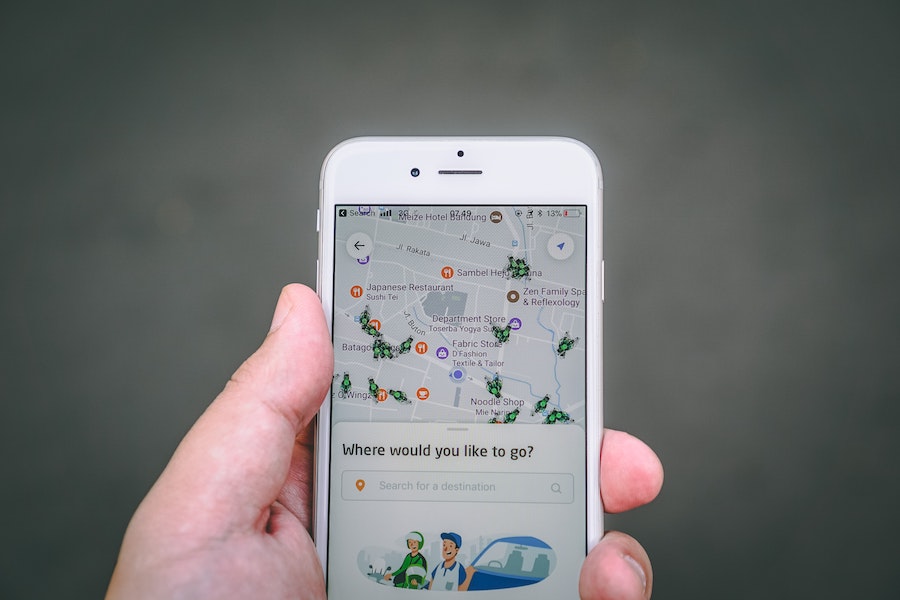
Source: Unsplash
Other Business Opportunities in Machine Learning
Let’s have a look at other examples of how ML can be used in various industries.
Personalization Algorithms
Today, tourists don’t have to spend hours finding the optimum package tour. AI algorithms will do all the hard work. They analyze behavioral data on the platform and offer a customized traveling option.
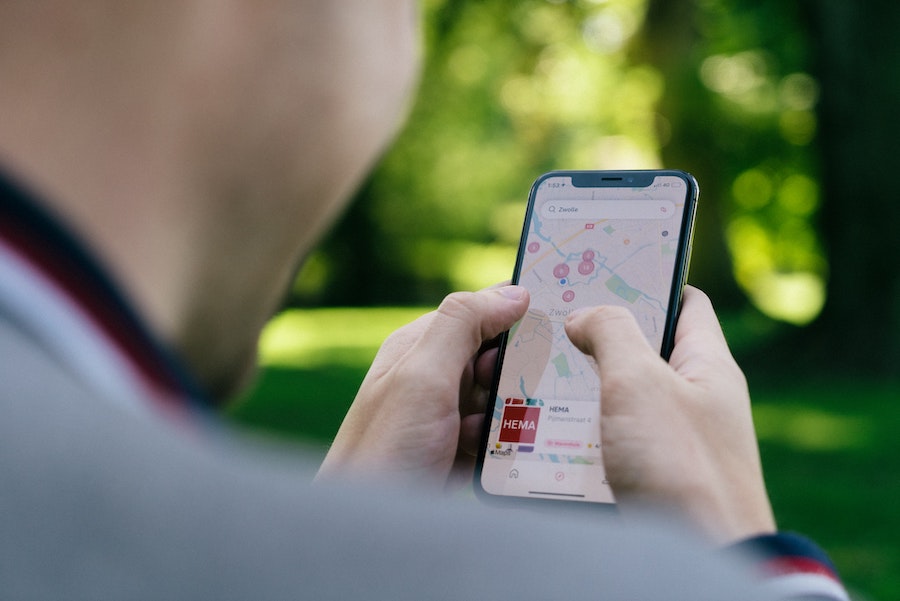
Source: Unsplash
Price Prediction
ML-trained software also determines the statistical probability of an increase in airfare prices. The forecast relies on the collected data. This application is still in its infancy. Yet Hopper, a Canadian startup, already offers such a service. The company helps users predict future flight and hotel prices with 95% recommendation accuracy.
Travel Agents
Travel agencies usually spend a lot of money on customer support. AI chatbots can act as virtual travel agents. They offer personalized suggestions based on the user’s preferences. Chatbots can even answer FAQs and replace human agents with repetitive tasks. This technology also saves the company's budget by simplifying staff training.

Source: Unsplash
Also, Artificial Intelligence and predictive analytics allow travel companies to boost their conversion rates. They scan customer behavior and find purchasing patterns.
Food Tech
The technologies in question also bode well for restaurants and cafe businesses. Food manufacturing is also experiencing a disruption with the proliferation of AI-generated tech comforts. Thus, UberEATS owes its sped-up growth to the adoption of Artificial Intelligence. The company is now posting a $6 billion bookings run rate in a $100 billion-plus market.

Source: Unsplash
According to VentureBeat, this resonating success is indeed thanks to Artificial Intelligence systems. Hence, the importance of machine learning in this business is unrivaled.
So let’s describe the impact of intelligent technologies using Uber’s Michelangelo as an example. Michelangelo is Uber's corporate ML platform. It aids in scaling AI to meet unique business needs. Michelangelo takes over the end-to-end ML workflow. Thus, it can process data, train, assess, and deploy models. The system also uses traditional machine learning algorithms in business analytics.
Michelangelo’s capabilities include:
- Calculating meal estimated time of delivery.
- Reducing waste and optimizing Uber’s delivery process.
- Generating marketplace forecasts.
- Providing search rankings and restaurant rankings.
- Powering search auto-completion for the app.
But the most used model is the first one. It estimates the time to prepare and deliver a meal.
But not by Uber alone. Let’s turn our gaze to the Food Processing and Handling niche. Covid-19 has put the applications of technology in full gear. So the FP&H industry is now experiencing an influx of new applications of AI, including:
- Sorting Packages and Products
- Food Safety Compliance
- Maintaining Cleanliness
- Developing Products
- Helping Customers with Decision Making
AI applications have also entered the farming sector. Thus, we’ve seen flying drones, intelligent tractors, and plucking machines that fast forward the AgTech.
Banking and Financial Services
The Banking industry is one of the most established spheres. Therefore, this sector is reluctant to embrace Machine Learning for business. The digital disruption has unfolded. Thus, the potential annual value of AI technologies could reach as high as $1 trillion in global banking. These numbers make the financial market come at AI-enabled software differently.

Source: Pexels
Fortified Security
Artificial Intelligence is the tool of the future in banking security. It feeds off the power of advanced data analytics, hence its ability to prevent fraud and improve compliance. Anti-money laundering activities that would ordinarily take hours or days are completed in a matter of seconds thanks to an AI algorithm. For example, anomaly detection looks for deviations from a system’s normal activity in real-time.
Personalized Customer Services
The mobile-first world jilts the banking and finance sector into embracing mobile solutions. That is when Artificial Intelligence and chatbots come in. Just like in other industries, virtual agents provide quality advice to customers by removing ‘human error’. They also assist the bank staff in automating their routine work. Also, personalized finance management tools have enormous potential in the market. The Global Personal Financial Management Tools market size will reach $3338.8 million in 2025.

Source: Unsplash
Smart Underwriting
Another application of machine learning in business is AI-based landing. The closing loan rate is 47 days, according to Ellie Mae Origination Insight Report Data. But smart technologies can help the banking sector do it much faster. Thus, intelligent software can process a ton of data points from credit bureau sources. The system then finds patterns and determines the paying capacity. After that, it performs credit risk analysis for applications. Thus, banks identify bad and good applicants.
Other use cases of intelligent systems include Robo-financial advisors. They comb through gigantic amounts of data in seconds. Their primary aim is to suggest the optimum investment decisions for customers.
Logistics And Transportation
The AI-infused revolution has made a dent in the shipping sector as well. Accenture shares that 36% of large-, mid-, and small-size organizations have successfully adopted AI. 28% of the businesses are ready to bring AI to logistics.
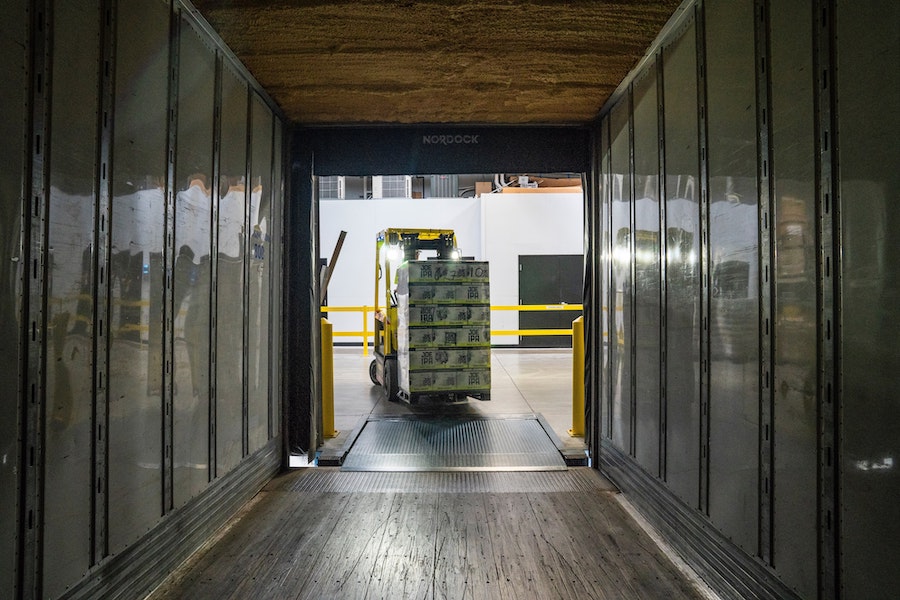
Source: Pexels
Already in 2017, Maersk, the world’s largest container shipping company, hired 200 people specializing in artificial intelligence. The company is currently using algorithmic trading to position vessels. Thus, the company covers transportation needs and supports pool partners in optimizing value.
Walmart isn’t behind the game either. In February 2019, the company took part in a FedEx pilot trial using autonomous robots created by DEKA Development & Research. During the pandemic panic, Walmart also used AI to help both customers and Personal Shoppers choose the best substitute for sold-out items.
Logistic Robots
Robotics is the future of many industries, including transportation. Logistics has already benefited from different robots to optimize warehouse management. They automate goods transportation in warehouses and storage facilities. Robots act like load conveyors. But they don’t need an onboard operator to move things across the floor. This process is known as intralogistics.
Delivery Drones
Have you heard of Amazon’s delivery drones? Although the company winds down some markets of drone delivery, this application is still outstanding. This Machine Learning business model allows for rapid parcel delivery with autonomous aerial vehicles. Also, drones are the safest way to transport goods, especially during the pandemic.
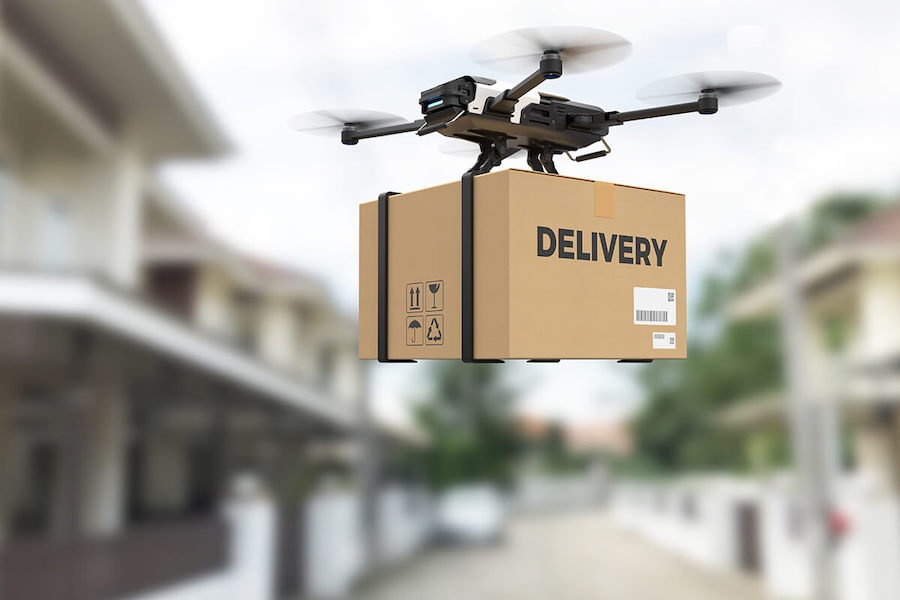
Source: Pexels
Self-Driving Cars
In 2020, California was among the first to greenlight a commercial driverless delivery service. In October, driverless taxis launched in Arizona, as part of Google’s Waymo service. The technology still has limits, though. But it showed safety and efficiency amidst the pandemic. Thus, self-driving vehicles, sidewalk robots, and shuttles have rolled out on streets. They helped deliver groceries, meals, and medicines.
AI Marketing Strategy
A robust marketing strategy is the lifeblood of business success. To achieve that, companies often turn to data scientist consultants. The latter leverage Artificial Intelligence and Machine Learning for businesses to gain insights. It means that companies can tap into customers’ minds. Thus, marketers can trace how customers click with marketing efforts and see whether they’re engaging with the product.
AI marketing use cases include:
- data analysis
- NLP or Natural Language Processing
- media buying
- automated decision making
- content marketing
- real-time personalization
Here’s how machine learning works in these business operations. In 2019, Chase Bank entered a deal with Persado, a New York-based company. Persado employs Machine Learning in business, including marketing. The main aim of Chase Bank was to deliver personalized banking at scale. After adopting Persado’s solutions, Chase achieved more humanity in its marketing.
Thus, a human-generated ad said: “Access cash from the equity in your home.” Persado’s version was: “It’s true—You can unlock cash from the equity in your home.”
The response was greater in the second case.
Here are other applications of Machine Learning in business:
Predictive Marketing Analytics
MarTech wouldn’t reach its scale without intelligent marketing tech tools. The latter often rely on predictive analytics. This type of analysis uses current and historical data. All this information, combined with statistical techniques, allows marketers to assess the likelihood of a certain future event. Predictive analytics help attracts more customers and improves the customer experience. It is also a powerful tool for predicting the performance of marketing efforts.

Source: Pexels
Dynamic Pricing
Intelligent technologies also enable dynamic or surge pricing. It means that companies can readjust the prices of goods for particular customer preferences. Market conditions as well as supply and demand can also tweak the prices. This technique adds a competitive edge to businesses and draws in new customers. Thus, AI-based tools can offer optimal prices for products in real-time. Amazon has been using this business practice for a long time.
Granular Personalization
AI-powered segmentation also enhances personalization in marketing. Classifying your customers into meaningful groups allows you to target messages. It means that each customer gets a personalized marketing effort. All these lead to more active customer engagement and increased profits.

Source: Pexels
Application of Machine Learning In Business: Final Word
Machine Learning in business operations has long become a mandate. It gathers actionable insights from raw data. Businesses of all industries can address complex, data-rich business problems. The impact of AI-based technologies spans a wide range of companies. Thus, banking, travel, and food industries have successfully implemented AI in traditional operations. Marketing, healthcare, and retail also experience major shifts in time-tested workflows.
Scale Up Your Business with Machine Learning
Need to develop a custom solution from scratch or reinvent the existing one? Ask for advice from our experienced tech team.
